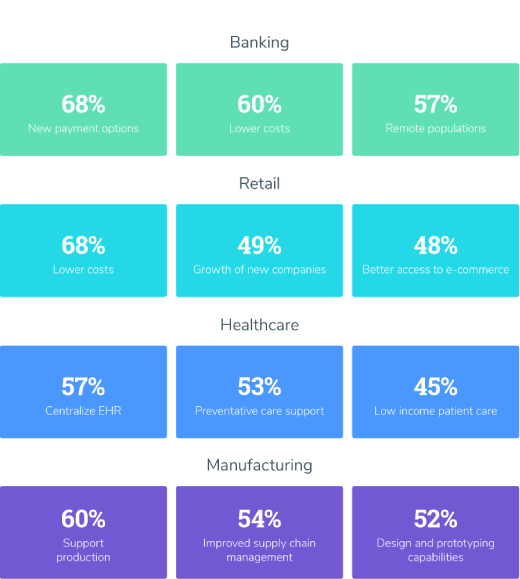Public cloud solutions allow startups to scale growth and operations at a low cost, but may sacrifice security compared to private options.
Startups and small businesses must look for tools that enable innovation and adaptation, yet are also cost-effective.
Increasingly, smaller companies look to the cloud for IT solutions that will scale with their evolving needs.
By the end of the decade, 80% of small businesses will make full use of cloud services, from storing and analyzing data to building out more secure infrastructures.
The capabilities offered by the cloud and the low cost of cloud-based services make it a highly appealing business solution for startups.
Differentiating between capabilities offered by the public and private cloud can help orient stakeholders in startups who must assess how different cloud solutions can best serve the needs of their product or service, its scope, and the end-users.
In this article, the first in a series on public and private cloud, I'll discuss how startups to mid-sized businesses can choose public or private cloud-based storage. I'll also discuss the advantages and challenges of each.
Ultimately, I argue that businesses should pursue a public cloud approach.
Cloud Services Have Benefits for Startups
Benefits of cloud integration apply across industries, according to a study by The Economist Intelligence Unit. The areas of advantage brought by cloud range from improved supply chain management for manufacturing firms to improving preventative care support for medical facilities.

With cloud solutions, startups don’t have to factor legacy code into their development strategies. With the luxury of this blank slate, they have the freedom to weigh many options when it comes to how to develop in the cloud.
For startups and small businesses, public cloud solutions are the best option to achieve these results and advantages.
The Public Cloud Offers Reliable, Distributed Services
Less overhead expense for more reliable service and support are what draw many small businesses to the public cloud.
Advantages of Using the Public Cloud
- Distributed Costs: Public Cloud service providers distribute the cost of hardware and its maintenance amongst the many clients who access services via the public cloud. Small businesses are thus able to receive excellent service and capabilities at an accessible price-point.
- Increased Intelligence: Even the smallest businesses can take advantage of increasingly sophisticated data processing capabilities offered through the cloud. Amazon Redshift and Google Cloud AI are examples of cloud-enabled applications that furnish businesses with the ability to derive actionable intelligence from large amounts of data. Smart algorithms available in CRM platforms like Salesforce help businesses identify the patterns behind the conversions that turn leads into opportunities, which can inform ongoing client lead nurturing tactics.
- Greater reliability: The managed services inherent in public cloud solutions allow businesses to avoid spending time troubleshooting failures in their IT ecosystems. It also means that end users enjoy more consistent service. In the public cloud, the failure of any one server doesn’t disrupt service, as data and applications are shifted to other available servers in the provider’s system.
- Ability to Scale: The pay-per-use model is another positive aspect of the public cloud. Costs are calculated and based on how much data you use for storage, as opposed to a flat rate price for a suite of cloud services that you may not use. As a result of this pricing structure, your small business or startup decision-makers can inform your cloud budget and strategy based on usage trends over time.
The Public Cloud Offers Fewer Security Controls
The public cloud, however, won’t necessarily scale indefinitely with startups' needs. Since businesses do not have total control over their data (since it is stored by an off-premise, externally owned entity), data organization and security measures are drawbacks for many businesses, particularly as they grow.
Disadvantages of Using the Public Cloud
- Unexpected costs: These occur when businesses need to shift large amounts of data out of the public cloud, which can be disruptive for smaller and less organized companies. Removing assets out of the cloud costs a few cents per GB, which adds up quickly for businesses dealing with lots of data. Costs are also incurred when data is transferred to a cloud hosted in a different region. Anticipated shifts in business strategy, such as geographic expansion of the business, warrants a close examination of data transfer costs and how geographies may influence the pricing of cloud vendors’ services.
- Less control over security: This is a major weakness of public cloud services for some businesses. Data generated in one location can be hosted anywhere where your public cloud service provider maintains data centers. When data is hosted by a public cloud provider with data centers in foreign countries, that data could be exposed to different regulatory protocols that do not necessarily agree with those in the locations in which the data is generated.
The Public Cloud is a Safe Place for Most Startups to Begin Their Cloud Journey
Overall, the public cloud offers an effective infrastructure for startups whose needs fluctuate in terms of network traffic and data generation. Small e-commerce businesses should consider public cloud services, where pay-per-use models and scalable infrastructure make data storage easy.
About the Author
Stanislas Walden
Content Associate at MentorMate
See full profile





